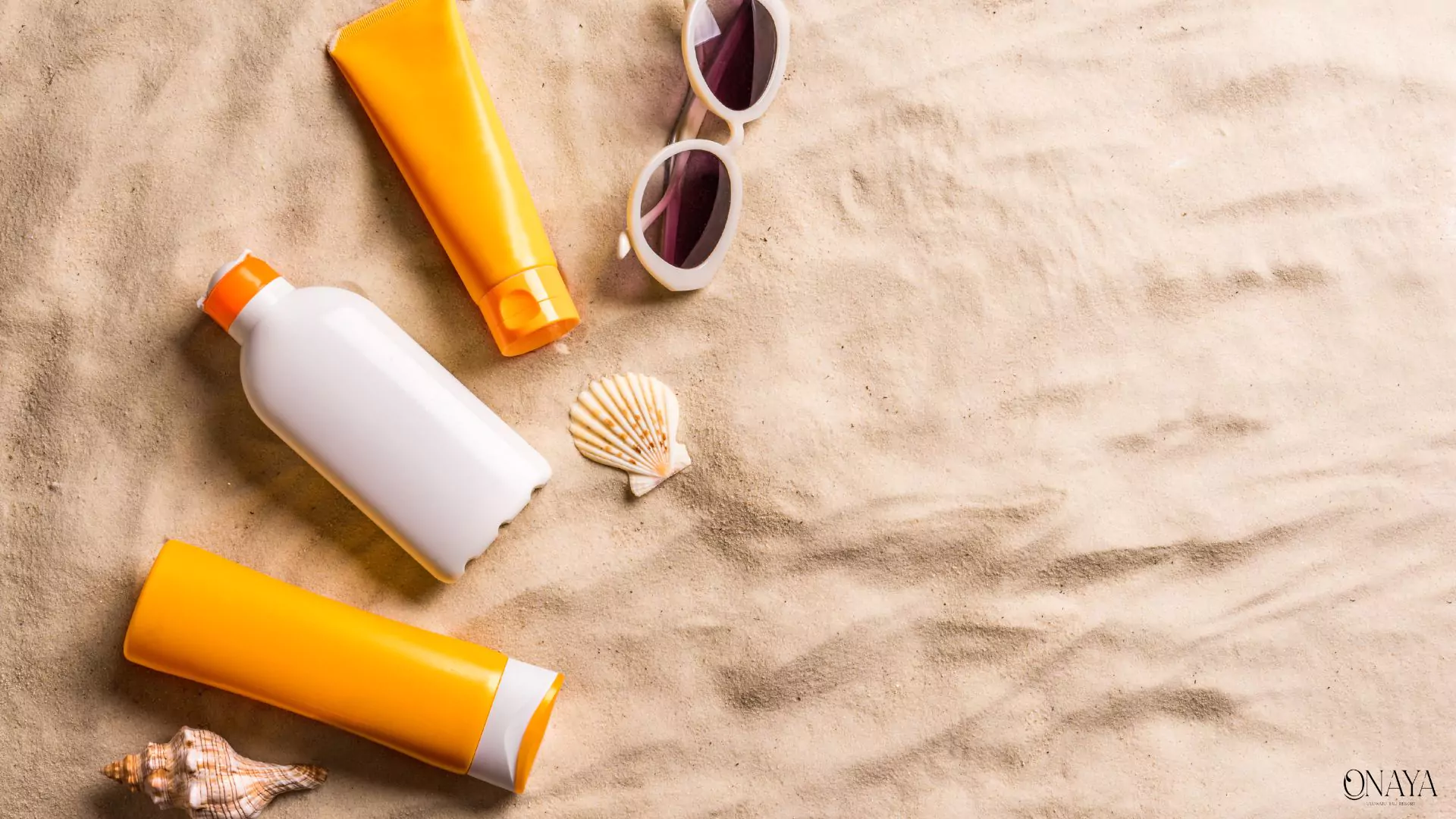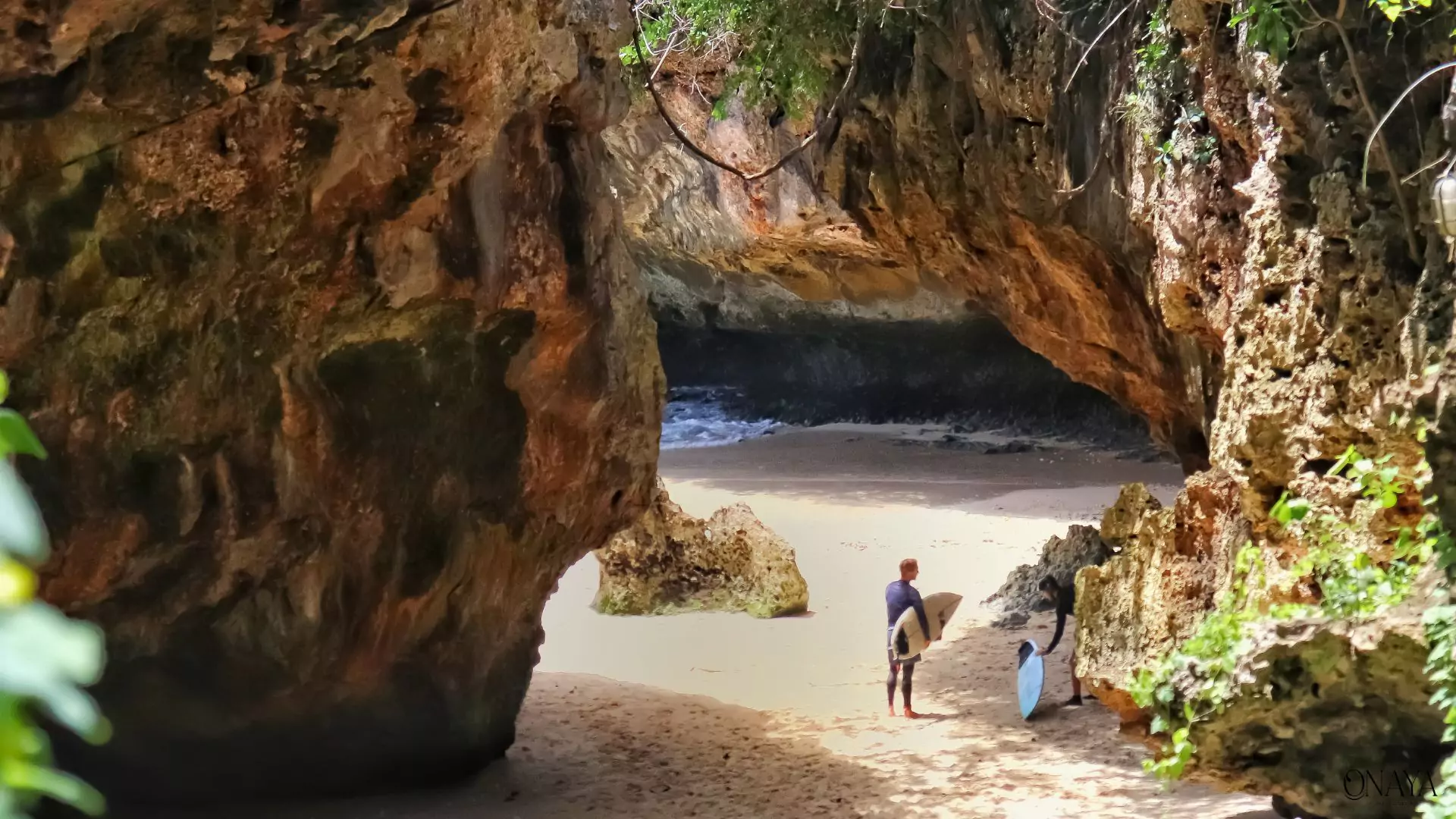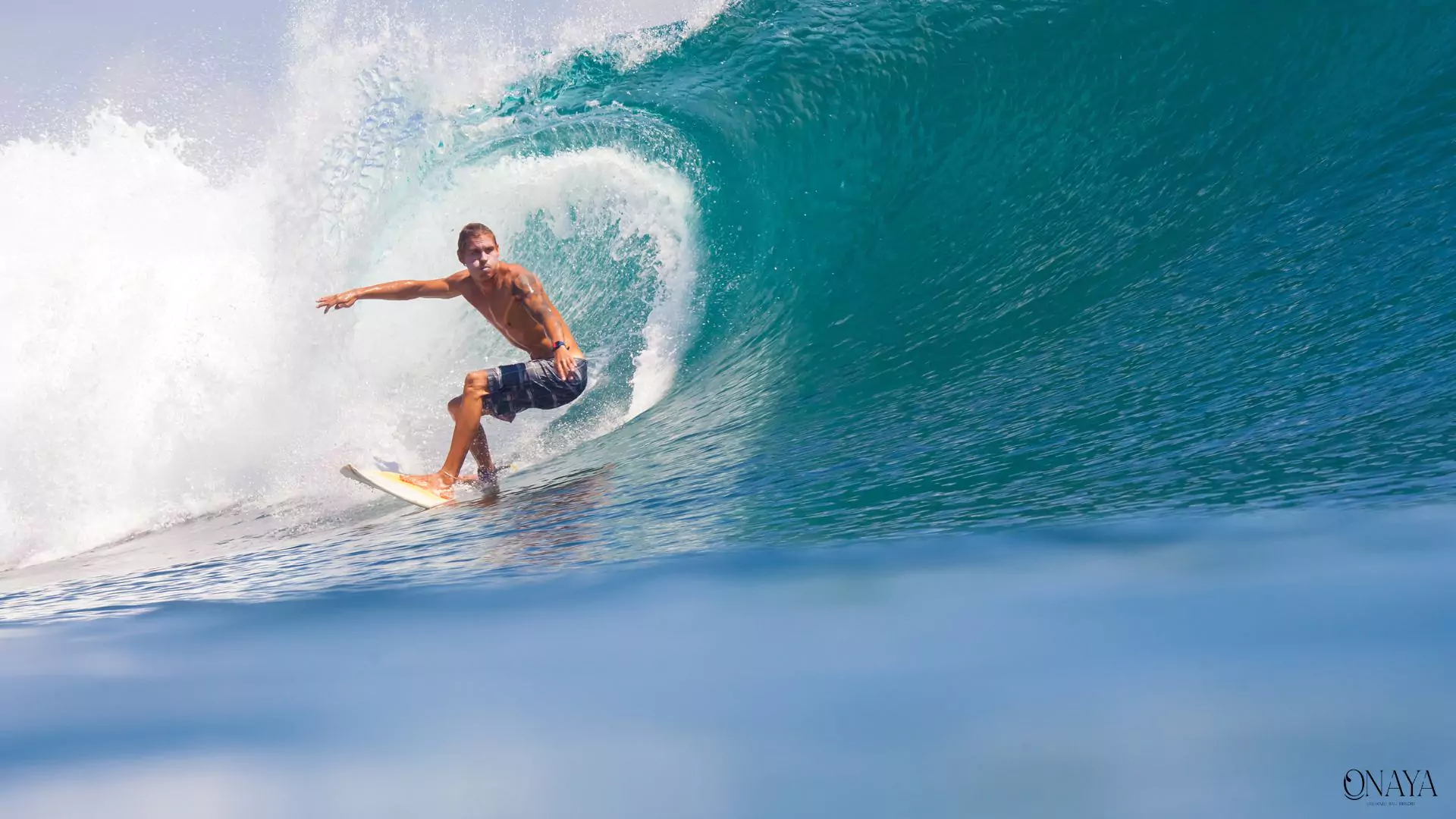Uluwatu, nestled on the southwestern tip of Bali’s Bukit Peninsula, is a paradise for beach lovers and surfers. However, enjoying this stunning location requires awareness of potential risks. This guide provides essential Uluwatu beach safety tips to ensure a safe and enjoyable visit.
Understanding Uluwatu’s Beaches
Uluwatu boasts several beautiful beaches, each with unique features:
- Padang Padang Beach: Clear waters and great surfing.
- Suluban Beach (Blue Point Beach): Cave-like entrance and challenging waves.
- Bingin Beach: Laid-back atmosphere with good surf conditions.
- Dreamland Beach: Wide, sandy beach popular with surfers and sunbathers.
- Balangan Beach: Long stretch of white sand and excellent surfing.
Essential Uluwatu Beach Safety Tips
1. Sun Protection

Bali’s tropical climate demands strong sun protection:
- Apply high SPF sunscreen 30 minutes before sun exposure
- Reapply every 2 hours or after swimming
- Wear a wide-brimmed hat and sunglasses
- Seek shade during peak hours (10 am to 4 pm)
- Wear light, loose-fitting clothes
2. Hydration
Stay hydrated in Uluwatu’s hot climate:
- Drink water regularly, even if you’re not thirsty
- Carry a reusable water bottle
- Limit alcohol consumption
- Eat water-rich fruits and vegetables
- Watch for signs of dehydration

3. Swimming Safety
Uluwatu’s strong currents require caution:
- Swim between flags at patrolled beaches
- Ask locals about safe swimming areas
- Never swim alone
- Know your limits
- Watch for rip currents
- If caught in a rip, stay calm and wave for help
4. Surf Safety
For safe surfing in Uluwatu:
- Only surf if you’re experienced
- Check surf forecasts before entering the water
- Use proper equipment, including a leash
- Follow surf etiquette
- Consider lessons if you’re a beginner
- Be aware of shallow reefs and rocky bottoms
5. Cliff Safety

Protect yourself near Uluwatu’s cliffs:
- Stay on designated paths
- Keep away from cliff edges
- Be careful in wet weather
- Wear shoes with good traction
- Never climb outside designated areas
6. Wildlife Awareness
Be cautious around Uluwatu’s wildlife:
- Don’t feed or approach monkeys
- Secure your belongings
- Stay calm if approached by a monkey
- Watch for jellyfish in the water
Beach-Specific Uluwatu Safety Tips
- Padang Padang Beach: Mind the steep staircase, watch for sharp coral and rocks, beware of strong currents at high tide.
- Suluban Beach: Navigate the cave entrance carefully, watch for slippery rocks, only suitable for experienced surfers.
- Bingin Beach: Wear proper footwear for the steep walk, be aware of changing tides, mind sharp coral and rocks in the water.
- Dreamland Beach: Watch for sudden large waves, be cautious of rip currents, keep an eye on your belongings.
- Balangan Beach: Mind the steep beach incline, watch for submerged rocks and coral, strong currents can be dangerous for inexperienced swimmers.
Emergency Preparedness
Stay prepared for emergencies in Uluwatu:
- Save local emergency numbers
- Know nearby medical facilities
- Carry a basic first aid kit
- Learn CPR and first aid
- Get travel insurance covering water activities
Cultural Sensitivity and Respect

Respect local customs in Uluwatu:
- Follow dress codes, especially at temples
- Be mindful of beach ceremonies
- Dispose of trash properly
- Respect marine life and the environment
Additional Uluwatu Beach Safety Considerations
- Food and Water Safety: Drink bottled or boiled water, be cautious with ice in drinks, eat at reputable restaurants, wash hands frequently.
- Transportation Safety: Wear a helmet when riding scooters, use reliable taxi services, be careful when walking on roads.
- Personal Belongings: Don’t leave items unattended on the beach, use hotel safes for valuables, watch for pickpockets in crowded areas.
- Night Safety: Stay in well-lit areas after dark, avoid solo beach walks at night, be aware of changing tides.
- Weather Awareness: Check forecasts regularly, prepare for sudden rain, seek shelter during thunderstorms.
- Fitness Considerations: Know your physical limits, consult a doctor about pre-existing conditions, take breaks when needed.
Conclusion
By following these Uluwatu beach safety tips, you can enjoy the area’s beauty while minimizing risks. Remember, a safe trip is a fun trip! Stay alert, respect the environment, and make unforgettable memories in this stunning coastal paradise.
FAQ Section
- Q: Are there lifeguards at Uluwatu beaches? A: Some Uluwatu beaches have lifeguards, but not all. Always check for lifeguard presence and swim between flags when available.
- Q: Is night swimming safe in Uluwatu? A: Night swimming isn’t recommended due to limited visibility and potentially stronger currents.
- Q: Are there dangerous sea creatures at Uluwatu beaches? A: While rare, jellyfish and sea urchins may be present. Stay alert when in the water.
- Q: Can I bring alcohol to Uluwatu beaches? A: It’s generally not allowed. Alcohol can also increase accident risks and dehydration.
- Q: Do Uluwatu beaches have shower facilities? A: Some beaches have basic showers, but it’s best to check beforehand.
- Q: Is it safe to leave valuables in my hotel room while at the beach? A: Use hotel safes for valuable items rather than leaving them unsecured.
- Q: What should I do if a jellyfish stings me at an Uluwatu beach? A: Rinse with seawater, remove visible tentacles, and seek medical help if symptoms persist.
- Q: Are there restricted areas on Uluwatu beaches? A: Some areas may be off-limits due to ceremonies or conservation. Always respect local guidelines.
- Q: Can I climb Uluwatu cliffs for a better view? A: Stick to official paths and platforms. Climbing outside designated areas is dangerous and not allowed.
- Q: What’s the safest time to visit Uluwatu beaches? A: Early morning or late afternoon often have calmer conditions. Always check local conditions and tides before visiting.
Book your stay with us here for your first days in Bali while you search for your Home in Bali 🙂

